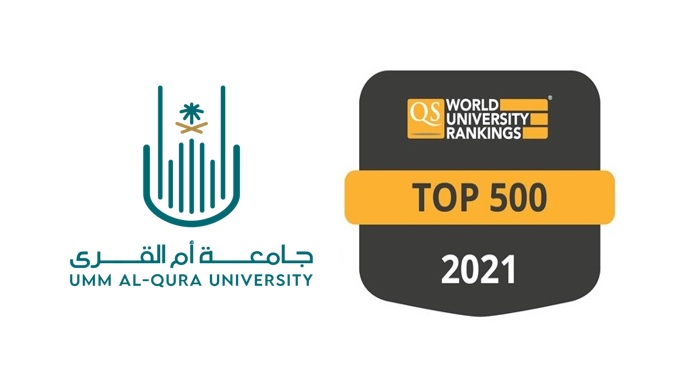
Umm Al-Qura University is included in the list of the top 500 global universities, as it advanced in the British QS ranking list of international universities for the year 2021. It ranked 474 after ranking 501 in 2020 and came 4th place among Saudi universities, according to the current classification. This is after applying its strategic plan towards implementing a clear methodology, in order to improve its academic and cognitive outputs and occupy a position in the ranks of international universities.
His Excellency Dr. Abdullah Bafail, the President of Umm Al-Qura University, represented by its vice deans, the deans of the colleges and institutes, as well as the academic members and employees, stressed the need to invest the cognitive capabilities and develop practical applications according to the latest technologies and international programs for their academic outputs to become compatible with development and economic growth, thereby becoming closely aligned with the needs of the labor market. This is in addition to developing the work programs and the mechanism of gaining a solid reputation in education to keep pace with the strategic targets and future plans for the Saudi Kingdom's vision and in order to become a university that ranks among the top 200 global universities by 2030.
The UQU President pointed to the responsibility entrusted to the university in serving the homeland and society, with its abundant knowledge, technical capabilities, and distinguished cadres in consulting and scientific research. This especially concerns the fields that contribute to the development of the Hajj and Umrah sector and serving the guests of the Most Merciful, while appreciating the honor of the neighborhood and the holiness of the location that Umm Al-Qura University enjoys.
The British QS classification depends on the standard criteria in the ranking of universities worldwide, which reviews the scientific research, knowledge production, the quality of education and learning, and the competitiveness of graduates in the labor market and their compatibility with the market's needs. The QS classification also takes into consideration the scientific reputation enjoyed by the academic programs offered by the university and their suitability to society. It also pays attention to the level of international academic reputation and how it attracts the international scientific competencies of researchers and academic members.
Moreover, QS considers the aspects related to higher education and scientific research by reviewing and evaluating the performance indicators of world universities concerning the number of scientific publications and their excellence in developing their outputs. This is carried out by polling the views of more than a million and a half academics around the world and more than 300 thousand employers.